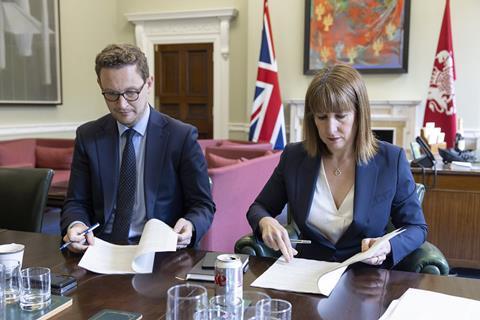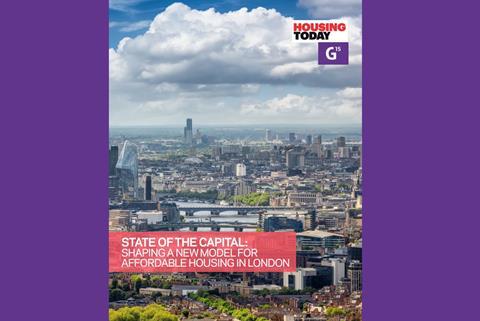Homes England to be redesignated as public finance institution to allow it to create financial assets and lower capital costs for developers
Rachel Reeves is considering a £25bn, 10-year Affordable Homes Programme (AHP), according to reports ahead of tomorrow’s multi-year spending review.
The chancellor could also announce plans to redesignate Homes England as a public financial institution or ‘housing bank’ to make it easier to deliver cheaper finance for housebuilding, the Financial Times has reported.
If confirmed, a £25bn AHP with funds dispersed over 10 years would represent a similar level of funding on an annual basis to that provided by the current programme but over a longer period.

The 2021-26 programme was allocated £11.5bn – equivalent to £2.3bn a year.
But the AHP has also received ‘top-ups’ of £300m and £500m for schemes completing in March 2026, effectively pushing the figure to £2.46bn a year, similar to the £2.5bn reportedly set to be announced by Reeves.
It is not clear whether the further £2bn top-up announced in March, under which homes can be completed by an extended deadline of 2029, would be counted as part of the new £25bn.
Redesignating Homes England as a ‘public finance institution’, dubbed as a ‘housing bank’ by insiders, would enable it to create financial assets through big investments or large scale lending.
It is understood to be linked to a decision last October to change the UK’s public debt target by allowing the Treasury to offset some liabilities with government financial assets.
The move would reportedly allow Homes England to deliver more finance to the housing industry and lowering the capital cost for housing developers.
The Treasury in recent months has been looking at ways of funding affordable housing without pushing up short term capital borrowing.
Officials have been considering Housing Today and G15’s proposal for an amortising grant model – under which housing associations receive a higher upfront grant payment to reduce their interest costs but then pay back some or all of the grant over time.
Because the money is repaid, government can class it as an investment rather than as a cost on the public balance sheet.
Reacting to the reports, Rachael Williamson, director of policy, communications and external affairs at the Chartered Institute of Housing, welcomed the potential 10-year plan for the sector saying “certainty and stability are essential to unlocking the sector’s capacity”.
Housing Today and G15’s State of the Capital report

Providing new social tenancies for the 323,800 households on London’s waiting lists would inject at least an additional £7.7bn a year into London and the UK’s economy.
However, while social housing providers and ministers are both aware of the need for more affordable housing, both housing associations and the government have balance sheets constraints.
This inaugural State of the Capital report, produced by Housing Today in partnership with G15, looks at several ideas that could be adopted to help the sector build much-needed affordable housing in London during these difficult times.
The report is written by Carl Brown of Housing Today, in collaboration with the G15.


























No comments yet